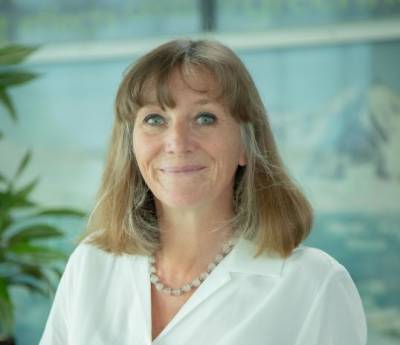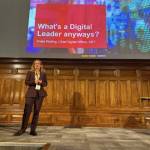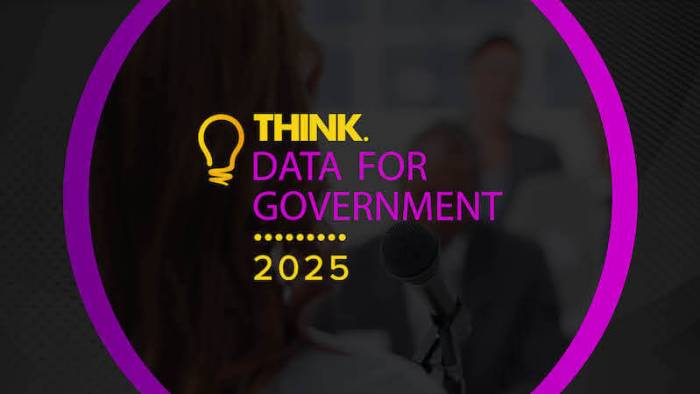Did you enjoy school?
I’ve always loved learning, so that side of school was enjoyable – though the best stage was probably university, where I could really focus on the subjects I love (science). My PhD was even better – it felt wonderfully indulgent to dive deep into a small field. There aren’t many times in life when you get to do that, and I look back on it as a golden period of focus.
What qualifications do you have?

I’m a dyed in the wool scientist so my main qualifications are BSc, MRes and PhD. I’ve picked up a few other bits and bobs along the way when I’ve needed new knowledge or skills to move forward. For example, an MBA from the University of Exeter that compliments my science training (especially in relation to innovation). I’m a strong advocate for ‘lifelong learning’ and the need to keep stretching so I take opportunities as they arise – and ideally try to make opportunities for myself and others.
Has your career path been a smooth transition, a rocky road or a combination of both?
Both. The smooth parts were great but the real value for growth is in the tough parts. It’s then that you build the skills that you’ll need to succeed. The rocky times make you focus on what you want to achieve, what’s important, hone your problem-solving skills, be innovative, imaginative and build your resilience.
What is the best career advice you can give to others?
Aim high, have faith, step forward – you can do it! Don’t be afraid to take the road less travelled and make sure you clear the road for others to follow. Keep growing, stretching and learning; the world is changing fast, and curiosity is your best asset. But my favourite is the advice my Dad gave me – lead by example. Be the leader you want to follow.
If you had to pick one mentor, that had the biggest influence on you, who would it be?
Gosh! That’s a hard question! It’s too hard to pick just one as I’ve been fortunate to work with some visionary leaders who’ve challenged me to think bigger and lead with purpose. They’ve all been excellent and were all on point when I needed them. I won’t embarrass anyone by calling them out – they know who they are.
From where do you draw inspiration?
Friends and family – especially my son as I want to play my (albeit small) part in making the world better for the next generation. My friends and family are the scaffolding to my life; they support me, challenge me to be better, and encourage me to go higher. They are amazing, inspiring people and I feel very lucky to have them in my life. I also draw inspiration, urgency and drive from my field. I believe that science holds the solution to many of the challenges facing society today and AI can help unlock that potential. It’s a great time to be working at the Met Office as we have the opportunity to apply scientific and technological advances to inform decisions on some of the big challenges facing society (such as climate change).
What is the biggest challenge you have faced to date?
If you liked this content…
The explosion of AI has brought some challenges – but also considerable opportunities. It’s often said that we are in the midst of an AI revolution that is fundamentally changing the way that we work and live. This is as true for the weather and climate sector as any other. To make the most of the opportunity, and address any challenges, we had to spin up fast! We launched the ‘AI4Everyone’ programme that brought AI into the hands of all Met Office staff and used a multi-threaded approach to demystify AI. It encourages and enables curiosity-driven innovation. Through AI4Everyone we provide tools, training and policies so staff can make informed decisions knowing that we are working together to mitigate risks – and make the most of opportunities. Thankfully the Met Office is full of curious and interested folk, and I have been amazed and inspired, by how quickly we’ve adapted to, and embraced, the new technology. The world in which we operate is changing; and so are we.
What qualities do you feel makes a good leader?
Empathy, vision, and integrity. A good leader listens (‘you have two ears and one mouth’), inspires, and creates space for others to thrive. They are brave and lead by example, especially in challenging environments, and are committed to continuous improvement – for themselves and their teams.
From a work viewpoint what has the last 12 months been like?
In a word: transformational. AI is changing the way we approach science, opening new possibilities and providing tools and approaches that will enable us to extract value and meaning from data in a way never experienced before. I believe the AI revolution is happening at just the right time – there are significant challenges facing society, such as climate change, food security, loss of biodiversity and pollution (to name but a few from my own sector). Over the last 12 months we’ve started to uncover the power of AI and how it can be harnessed for public good. It’s an exciting time for the industry, full of potential for good.
What would you say are the biggest tech-based challenges we face today?
To realise the opportunity of AI for public good we need to get ready to scale. That means having responsible and ethical AI frameworks in place, accessible infrastructure, a skilled, supported, empowered and critically diverse workforce, and a heathy, rich and robust pipeline of talent for the future. We need to ensure that innovation is inclusive, transparent, aligned with societal needs, and we need to build trust and confidence in AI and digital systems.
I’ve recently published a blog about this.
What can be done to encourage more women into the industry?
There has never been a better time to work in technology. The opportunities to shape our future are vast and increasing. AI has the potential to help us tackle some of the most pressing challenges facing society. But while the technology sector has long been synonymous with innovation, it lags behind when it comes to diversity. This means that there is unrealized potential since diversity is a catalyst for innovation. To address this, we need to encourage a more diverse and inclusive workforce across all dimensions- not just gender. As individuals, we should encourage any young person with an interest in a STEM subject to stick with it. And, if you’re a woman working in tech, I urge you to consider whether you’re visible. ‘You have to see it to be it’ and you never know who may be looking for a sign that a future career in tech is possible.
Give us a fact about you that most other people wouldn’t know.
As a child I wanted to be a Naval Fighter Navigator (like my Dad). But then I discovered science – it’s ‘like magic but better as it’s real’ and has led to a fulfilling, stretching and exciting career with lots of twist and turns, just how I like it.








